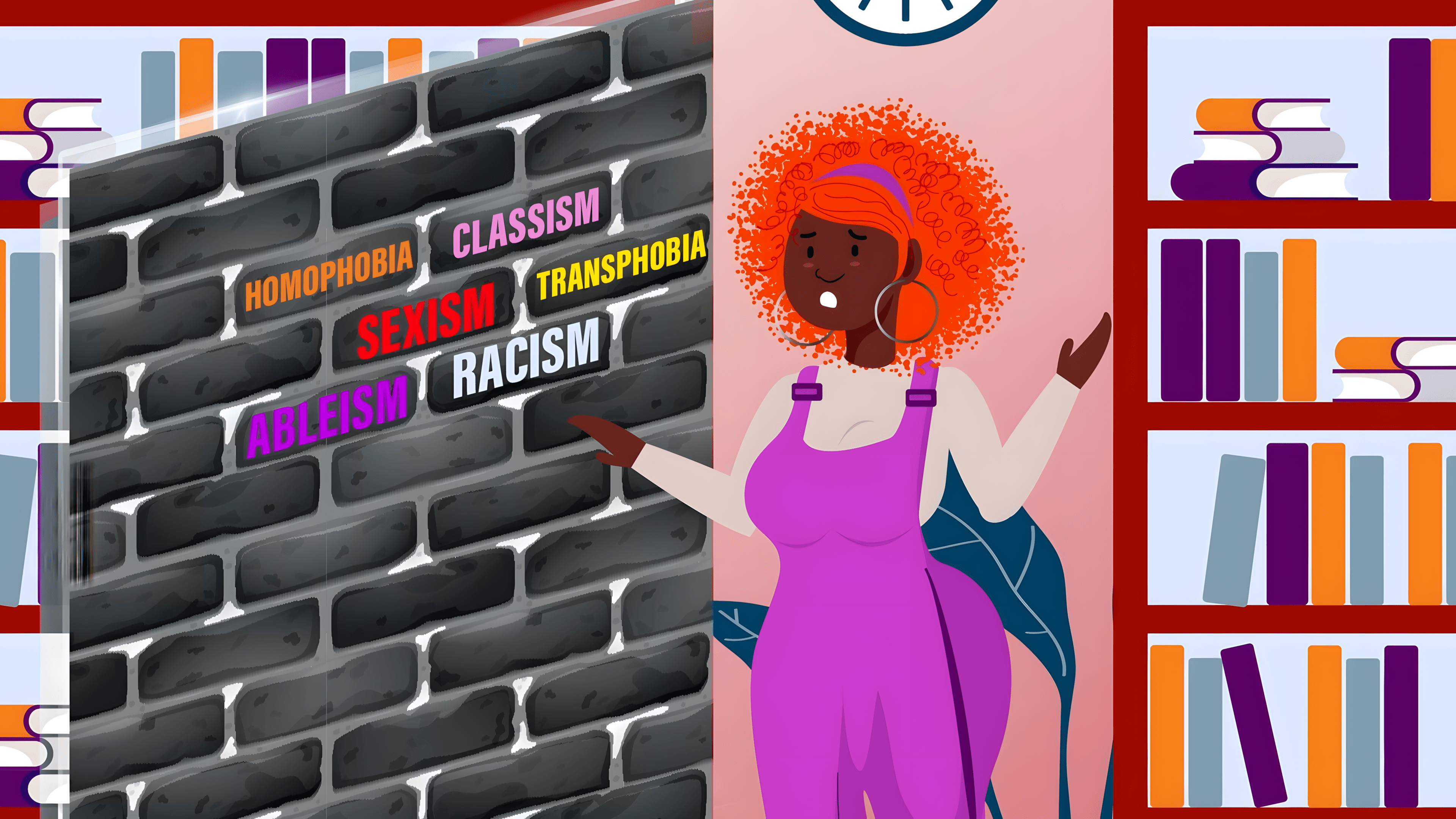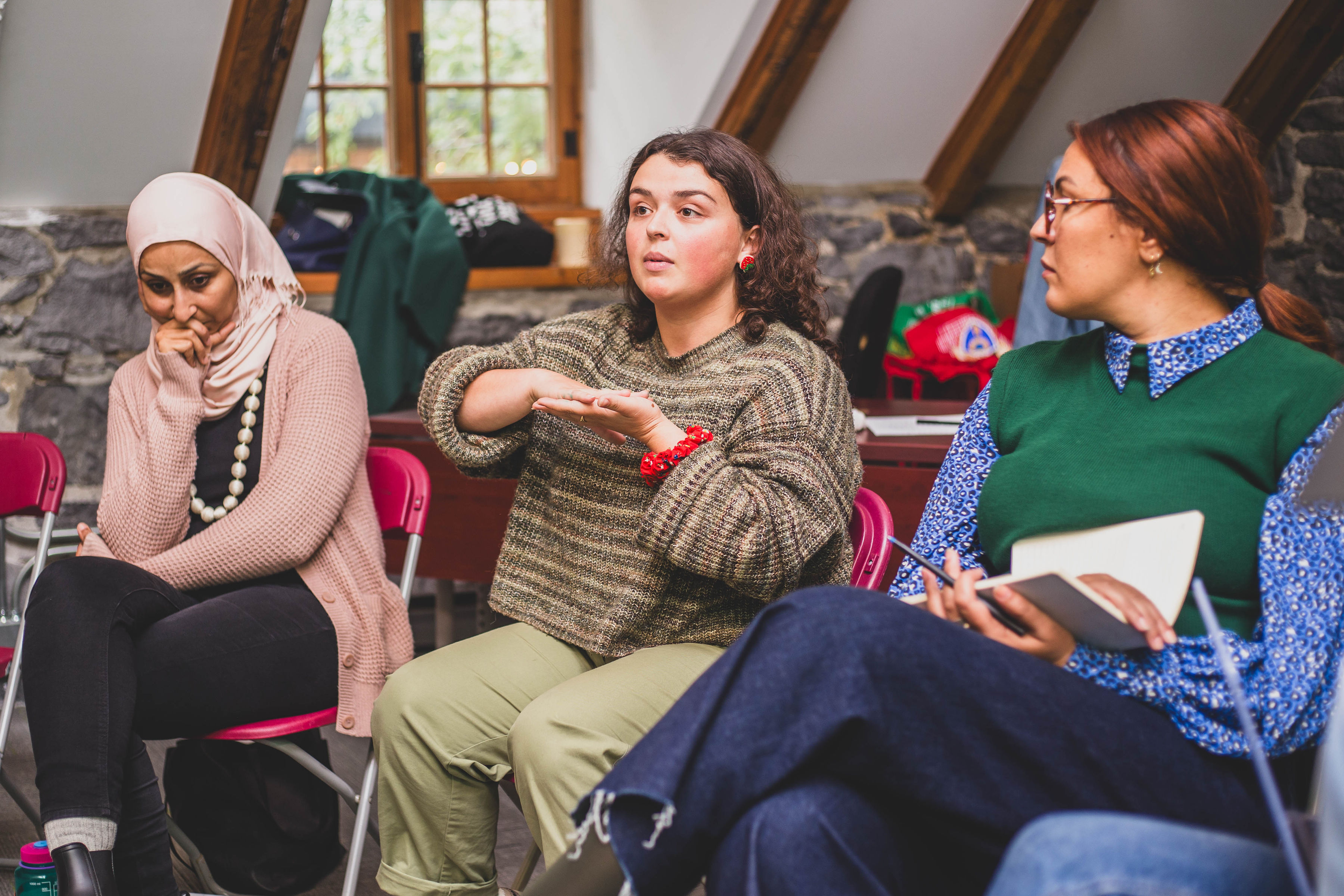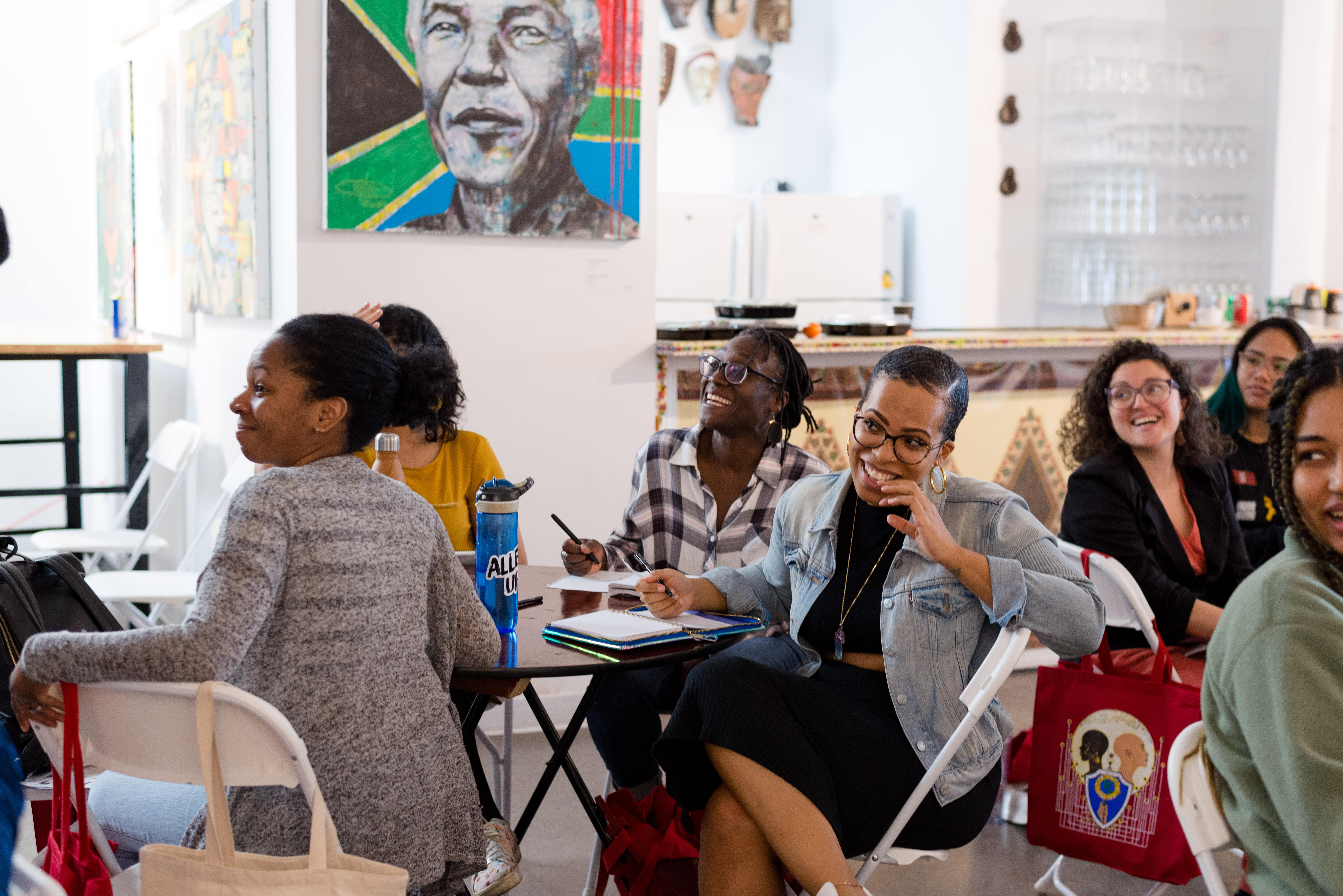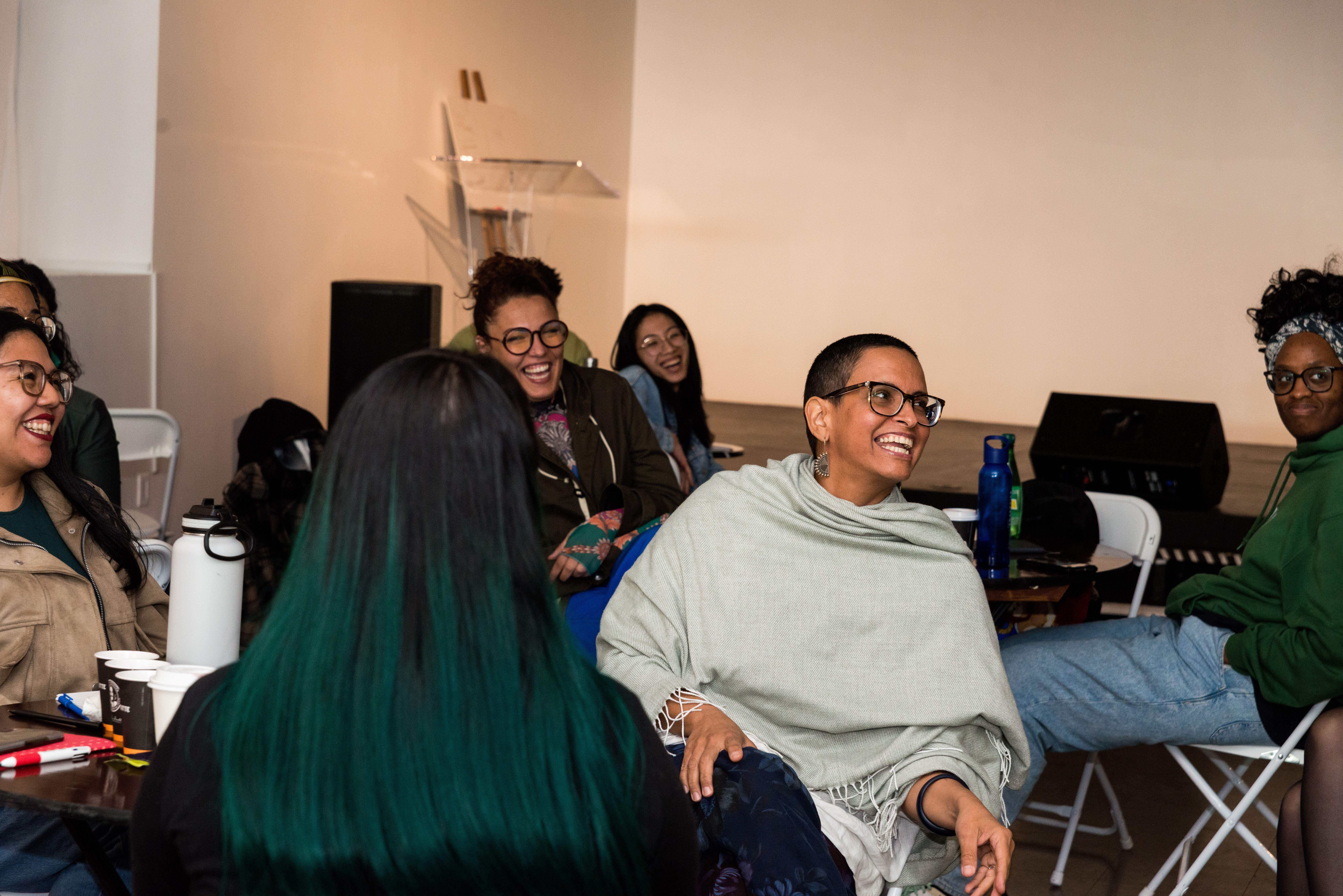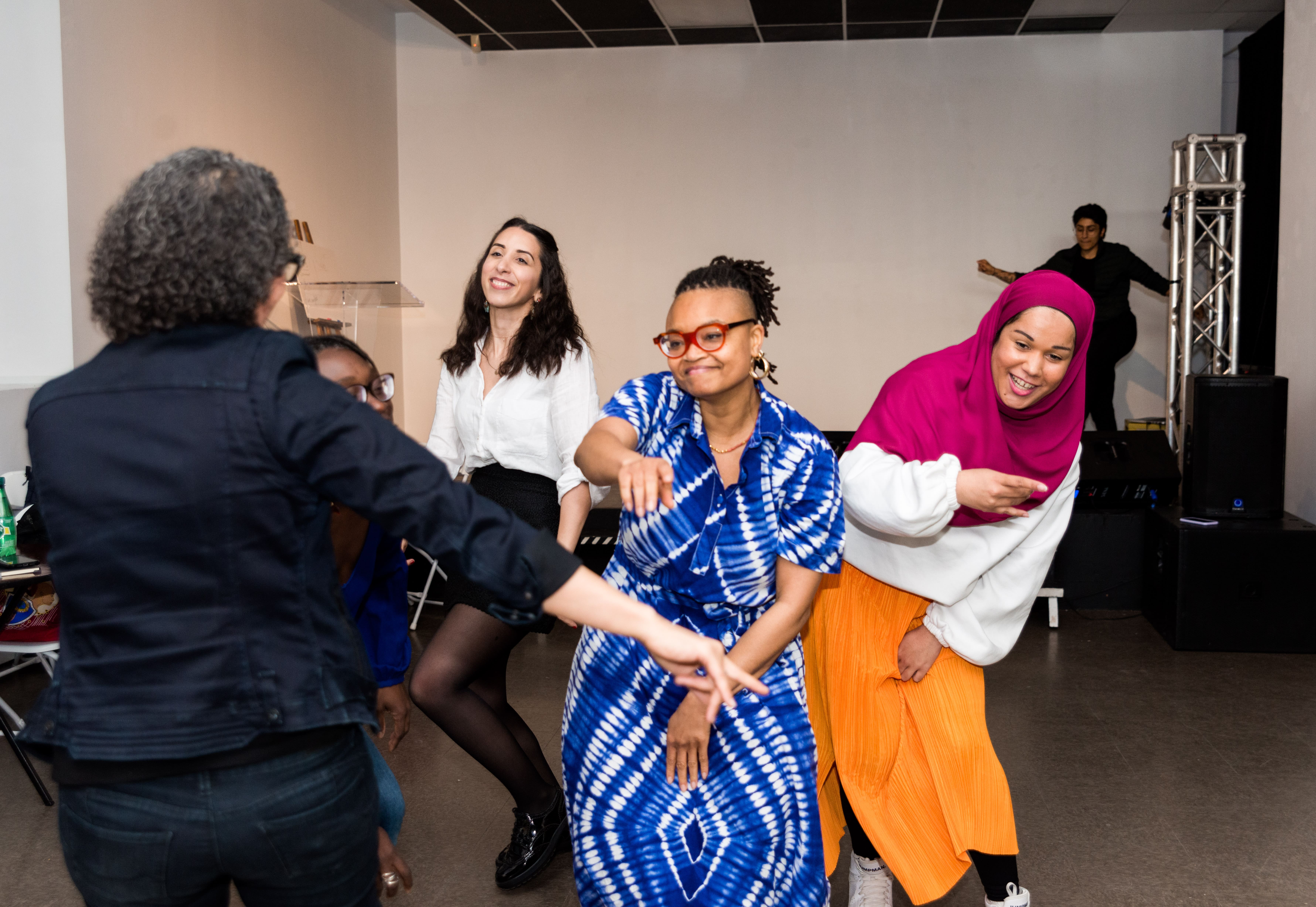Research Report: Pathways to Transforming Practices
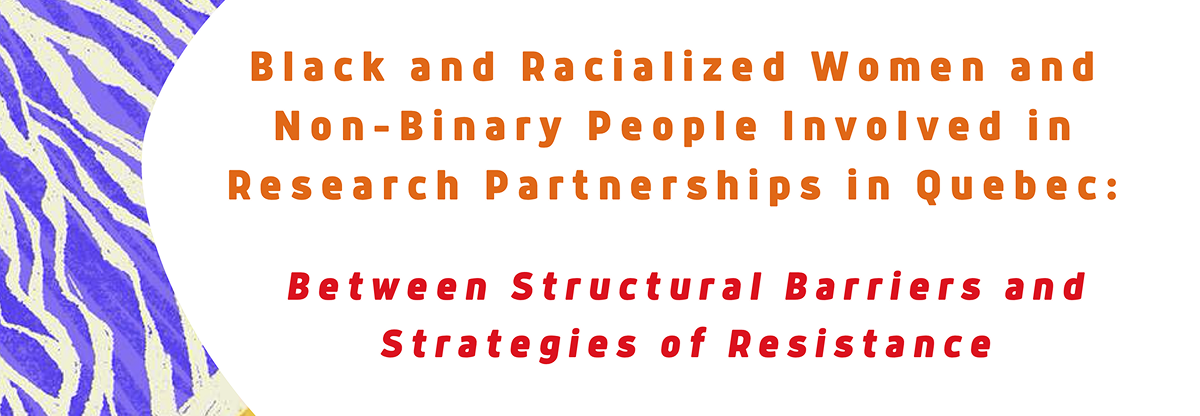
This report, the product of rigorous collaborative work by Félicia Cá and Saaz Taher, brings together the insights, knowledge, lived experiences, and transformative strategies gathered during their 2022 study. It offers a clear analysis of the systemic violence faced by Black and racialized women and non-binary people in partnership-based research settings, while also shedding light on the resistance, solidarity, and creative initiatives that continue to emerge in response.
The report includes a literature review on epistemic injustice in research environments, an in-depth overview of the by/for/with methodology guiding the project, a contextual analysis of the stories shared, and action-oriented strategies developed by those most directly impacted. It serves as an essential resource for anyone seeking to deepen their understanding, document lived experiences, engage in training, or advocate for more just and collaborative research practices.
It is an offering to be read, re-read, and reflected on—together.
To cite this report: Cá, Félicia et Saaz Taher. (2024). Black and Racialized Women and Non-Binary People Involved in Research Partnership in Quebec : Between Structural Barriers and Strategies of Resistance. Research Report. Montreal: PARR Project, Relais-Femmes.
Some excerpts are drawn from testimonies in the PSRR report or from the reflective card game. These have been adapted and anonymized for outreach purposes.
Promotion des actrices racisées en recherche (PARR). (2024). Strategies in bloom: Cultivate your well-being in collaborative research (Reflective card deck - English version). A tool for raising awareness and self-reflection, based on the testimonials and transformation ideas shared as part of the PARR project.
The definition of epistemic injustice is taken from the PARR report, which quotes Godrie, B., Desrosières, E., & al. (2020). Les injustices épistémiques : vers une reconnaissance des savoirs marginalisés.








